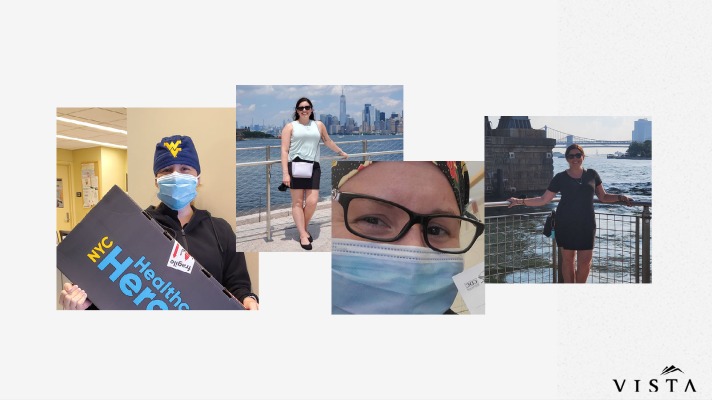As a Clinician, Are You Taking Care of Your Mental Health?

The COVID-19 pandemic has changed the way the healthcare system operates. It’s taken a tremendous toll on the many physicians and advanced healthcare practitioners who are responding to the crisis. But the toll goes well beyond the countless hours they’ve dedicated to helping patients. It also puts an enormous strain on their mental health.
Providers have spent the better part of the last year, putting themselves in harm’s way with potential coronavirus exposure. The mental strain caused by having to care for so many patients when combined with the fear of contracting the disease is significant.
Monitoring, maintaining, and caring for physicians’ mental health should be a priority. This goes beyond altruism. It not only helps physicians – a worthy cause in and of itself – but it will also lead to better patient outcomes. A mentally healthy physician has a better chance of providing excellent care.
Here’s how mental health impacts healthcare workers during the COVID-19 pandemic and how healthcare workers prioritizing their mental health can help all parties involved.
The impact of COVID-19 on healthcare workers
The COVID-19 pandemic has magnified the health impacts that healthcare workers experience, especially on their mental health. With a spotlight on the stress, pressure, and burnout healthcare workers face in their jobs, what was once a stigma is now being discussed more openly.
A study conducted among Chinese healthcare workers surveyed 1,257 providers exposed to COVID-19 in 34 Chinese hospitals. The study found that these healthcare workers had “a high risk of developing unfavorable mental health outcomes.” Among the respondents, the number of mental health issues reported was staggering:
50% reported symptoms of depression
44% reported symptoms of anxiety
34% reported insomnia
71% reported some sort of distress
The impacts of these symptoms can be far-reaching. However, it’s crucial for physicians and other healthcare workers to remember that they are not alone when facing these challenges. There are ways to address and even overcome these issues while still maintaining continuity of care in their roles.
The role of self-care in helping providers cope
So, how can healthcare providers address their mental health needs while providing continuity of care? One method is through practicing effective self-care. For healthcare providers, it’s critical to do this every day. Healthcare workers can benefit from self-care, as it allows them vital time to focus on their well-being both inside and outside the clinical setting.
Here are some examples of effective self-care practices healthcare providers can engage in during the COVID-19 pandemic:
- Practicing meditation or mindfulness. Taking deep breaths – just a few at a time – can also help.
- Spending time in nature. One study found that taking 120 minutes a week in nature (or around 15 minutes a day) has positively impacted health and wellbeing.
- Take time to exercise daily. This can be as simple as a walk around the neighborhood, moderate strength training, or aerobics.
- Eat a balanced diet. During times of great stress, it can be easy to eat junk food or fast food. Maintaining a healthy, proper diet is the key to feeling good.
- Recognize that it’s okay to open up to a professional about your experiences. These are incredibly trying times. Acknowledge your stress and other feelings you experience in the clinic, and consider taking space to process your emotions.
- Engage in an enjoyable hobby or pastime outside of work hours.
- Express gratitude. Taking stock of what you are grateful for in life can keep your outlook positive and your mind focused on the good around you.
Recognize that mental health symptoms may persist
What happens when you seemingly address your mental health issues and continue to experience symptoms? Understand that symptoms may disappear or decrease in some, but they may remain or grow stronger in others.
This is where counselors and therapists play a crucial role. When mental health issues increase or worsen, it may be time to look for help from a trained professional.
How VISTA can help
VISTA has several resources to help clinicians address and cope with mental health issues, including burnout, stress management, and perceived issues with productivity. We also help healthcare professionals find the role that matches their wants and needs so that they can focus on self-actualization.
In summary, mental health is a genuine concern for healthcare workers, particularly during crisis situations. Healthcare workers should enact steps to practice self-care wherever appropriate. They can also ease their stress by finding the right position.
At VISTA, we work with clinicians and other healthcare professionals to help them find the role that’s perfect for them. By working with VISTA, you can find the assignment that matches what you want and need out of a career. For more on how VISTA can put you in the right role, contact us today.









